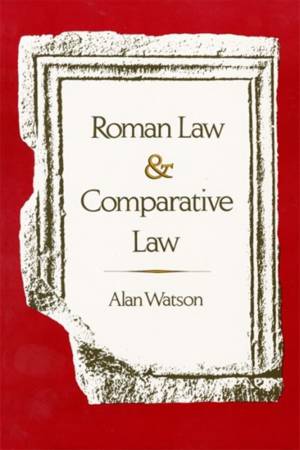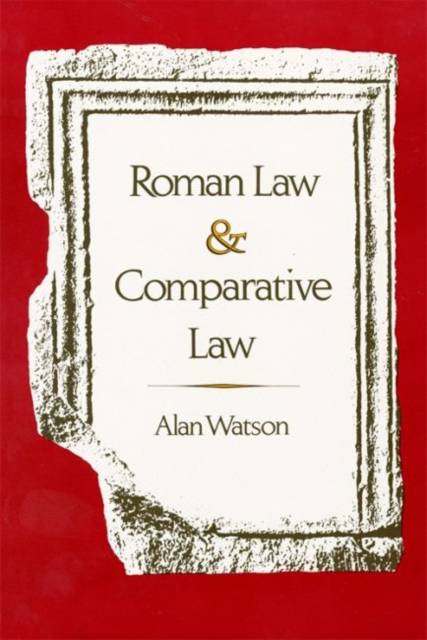
En raison d'une grêve chez bpost, votre commande pourrait être retardée. Vous avez besoin d’un livre rapidement ? Nos magasins vous accueillent à bras ouverts !
- Retrait gratuit dans votre magasin Club
- 7.000.000 titres dans notre catalogue
- Payer en toute sécurité
- Toujours un magasin près de chez vous
En raison de la grêve chez bpost, votre commande pourrait être retardée. Vous avez besoin d’un livre rapidement ? Nos magasins vous accueillent à bras ouverts !
- Retrait gratuit dans votre magasin Club
- 7.000.0000 titres dans notre catalogue
- Payer en toute sécurité
- Toujours un magasin près de chez vous
Description
To understand how law develops and how legal rules and structures relate to society, one must examine the issues both comparatively and historically, Alan Watson asserts. And in the Western world, he adds, in order to understand law comparatively, one must have knowledge of Roman law.
As his title suggests, Watson has divided the book into two related but independent parts. The first part, a revised and enlarged version of his 1970 volume The Law of the Ancient Romans, provides a comprehensive description of the system of Roman law. Watson begins with a discussion of law and the Roman mind and proceeds to such topics as slavery, property, contracts, delicts, and succession. In part two he argues that comparative law--an area of study still in its infancy--can help us "to identify the circumstances in which law changes, thereby uncovering the causes of legal development." Guided by this purpose, Watson examines the ways in which Roman law influenced later legal systems and how comparative law explains the role of law in society. He ties his explication throughout to individual issues. These include the structure of European legal systems, tort law in the French civil code, the structure of Blackstone's Commentaries on the Law of England, differences between contract law in France and Germany, the parameters of judicial reasoning, lessons to be drawn from feudal law, and the interests of governments in making and communicating law. He takes care to discriminate between law created by legislatures and law conceived by scholarly jurists or judges.Spécifications
Parties prenantes
- Auteur(s) :
- Editeur:
Contenu
- Nombre de pages :
- 352
- Langue:
- Anglais
Caractéristiques
- EAN:
- 9780820312613
- Date de parution :
- 01-02-91
- Format:
- Livre broché
- Format numérique:
- Trade paperback (VS)
- Dimensions :
- 152 mm x 228 mm
- Poids :
- 530 g

Les avis
Nous publions uniquement les avis qui respectent les conditions requises. Consultez nos conditions pour les avis.






